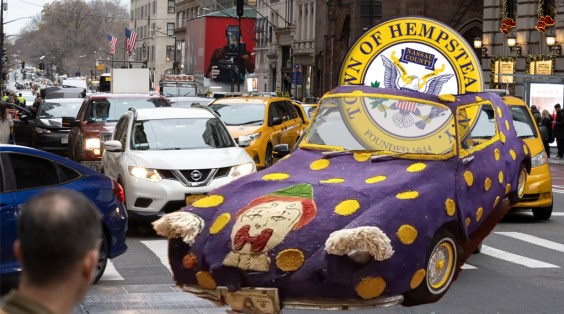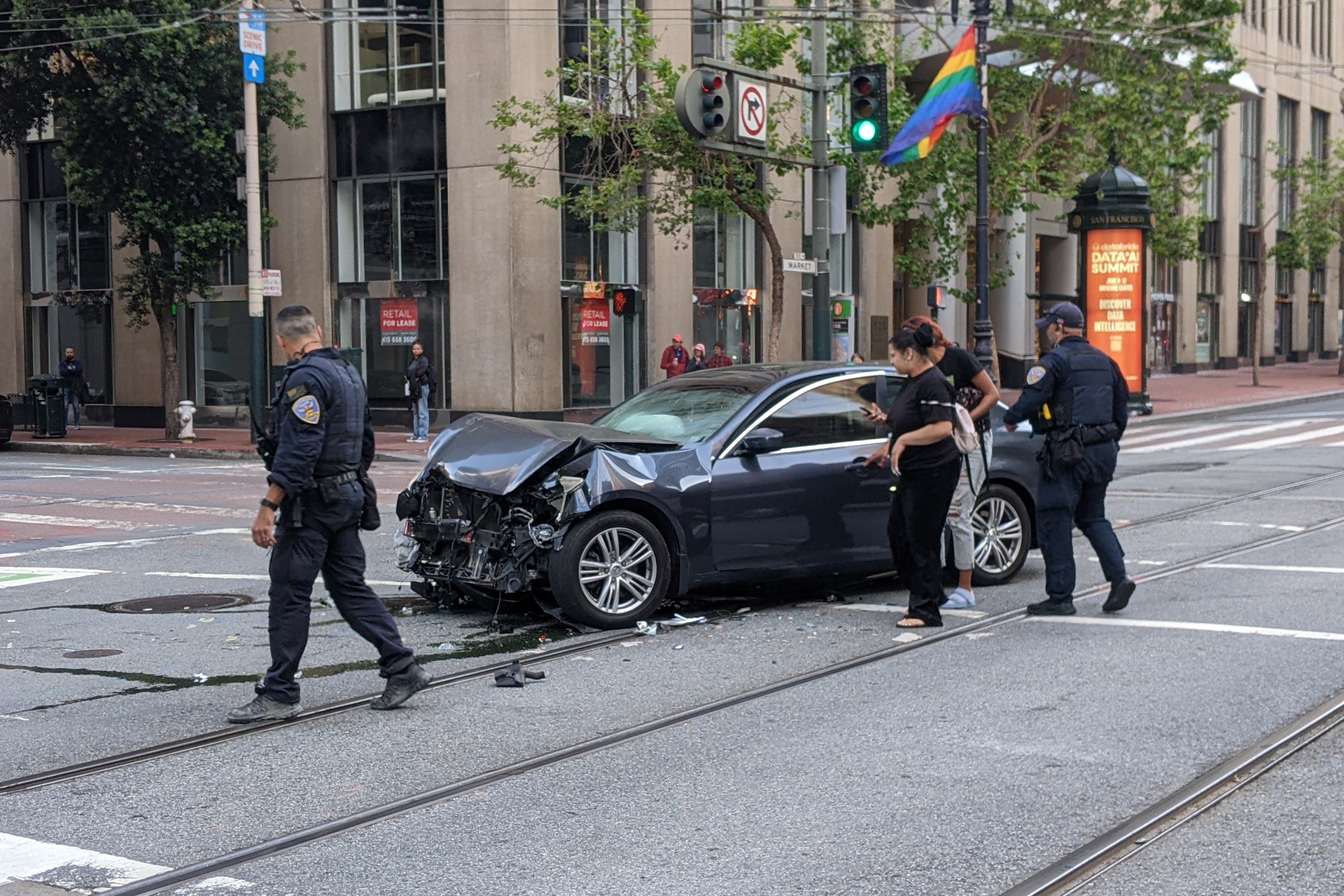 Board of Supervisors President David Chiu testifies before the SFMTA Board last year. A new ballot measure would give the Board of Supervisors power to nominate three of the seven SFMTA Board members, and jointly appoint one with the Mayor. Photo: Bryan Goebel
Board of Supervisors President David Chiu testifies before the SFMTA Board last year. A new ballot measure would give the Board of Supervisors power to nominate three of the seven SFMTA Board members, and jointly appoint one with the Mayor. Photo: Bryan GoebelThe ink has barely dried on the first public draft of a charter amendment that could bring sweeping changes to the San Francisco Municipal Transportation Agency (SFMTA), but supporters and critics are already digging in for a battle that could once again redefine the city's transit system.
On one side, there are the six members of the Board of Supervisors' progressive block, some of the city's transit advocacy groups, and a coalition of progressive groups that do some organizing around transit, but which aren't transportation-specific organizations. Many of those groups have been involved in the crafting of the measure, though it remains to be seen whether all of them will remain on board with the final product.
In the days since the measure was announced, the Mayor's office has come out in opposition to it, along with dissenting groups of transit advocates such as Rescue Muni.
With a final draft of the amendment still pending, it's also not certain whether the Muni operators' union will line up behind it. The measure in its present form would remove a charter provision guaranteeing them the second highest transit operator salary in the country.
Daniel Murphy, who chairs the SFMTA's Citizens' Advisory Council, argued that the measure is a misguided attempt to move power from the Mayor's Office to the Board of Supervisors.
Giving the Board of Supervisors the power to appoint half the SFMTA Board (including a joint appointment with the Mayor), lowering the number of votes needed to reject the SFMTA's budget to six, and giving the supervisors more say over route changes would give them "enough leverage to do anything they want to the agency whenever they want, period," said Murphy. "Under this measure, there's no reason for the MTA board to even exist."
Echoing the words of Tony Winnicker, a spokesperson for the Mayor, Murphy described the measure as "a much more shocking power grab than I expected from them," while pointing to the influence the supervisors already exercise over Muni, including through control of the San Francisco County Transportation Authority.
Murphy, a veteran of the legislative process who helped craft Proposition E in 1999, would rather the SFCTA be folded into the SFMTA, with two of the supervisors subsequently sitting on the SFMTA Board themselves. "I think it would actually create a better relationship between the supervisors and the agency," he said. "It's certainly better than just giving the supervisors carte blanche power over the agency, which this thing does."
But the supervisors were far from alone in crafting the measure, which includes input from the San Francisco Transit Riders Union, People Organized to Win Employment Rights (POWER), the Chinese Progressive Association, the Chinatown Community Development Center, Livable City, the San Francisco Bicycle Coalition, Walk SF, and the Senior Action Network.
Livable City Executive Director Tom Radulovich -- himself a member of the elected BART Board of Directors -- said there's a lot to like in the broad-ranging measure. "Fixing Muni isn't a one-dimensional question," said Radulovich. "There's a lot that's broken and it all needs to get fixed."
Proposition E in 1999 gave the Mayor the power to appoint the full board, but Radulovich said that setup hasn't worked. "The notion that you can run [the SFMTA] out of the Mayor's office, not only was it not the intent of Prop E, it doesn't work," he said. The SFMTA, now a decade old, "has really failed," he added.
Dave Snyder, who heads the new San Francisco Transit Riders Union, said his organization hasn't taken a position on the measure yet, but he's encouraged by it. "I'm happy to see a comprehensive look at the issue," Snyder said. "The existing management of Muni, with so much power in the Mayor's office, clearly isn't working very well. That's a fact."
Murphy and Rescue Muni chair Andrew Sullivan remained deeply skeptical, however.
"Prior to 2000, the Supervisors reviewed every line item in the budget, and service was far worse then (based on service standards) than it is now," Sullivan wrote in an email to Streetsblog. "Since 2000, the Supervisors have often tried to force the MTA to make bad decisions for riders, including such things as forcing the agency to test CNG buses, blocking stop consolidation, delaying route changes, and as SFCTA, approving an expenditure plan that sent transit sales tax money to pay for [Doyle Drive]."
Murphy also dismissed the measure's provision to create an independent auditor for the SFMTA as unnecessary, since the city already audits the agency through the Controller's Office. But Radulovich, as a BART director, said he's jealous of the idea.
"An Inspector General, not only to serve as the auditor for the MTA, but putting them in charge of performance measurement, I think is definitely huge," he said. "As a policymaker, you're dependent on your professional staff, and if you don't have your own independent check, well, they want to hide their failures."
The one piece of the legislation Murphy did like is the estimated $40 million in tax revenue the SFMTA would get from the general fund. The Mayor's office opposed that, since it would come from the city's general fund.
Murphy also doubted the measure would be approved by voters in its present form. "Prop. E was this big thing where everybody held hands and sang Kumbaya and it got 61 or 62 percent of the vote," he said. "The idea that this will manage to hold a majority in an election that's probably not going to be a super high turnout election for San Francisco -- that's just not going to happen."
But Judson True, a former SFMTA spokesperson and current aide to Board of Supervisors President David Chiu, said the four supervisors who sponsored the initiative would do the heavy lifting to promote it.
"With so many supervisors behind this effort to begin with, you can be sure the measure will have considerable support in the fall," said True. "We also expect the already strong coalition of transit advocates to grow as the measure goes through the Board process over the next few months."




